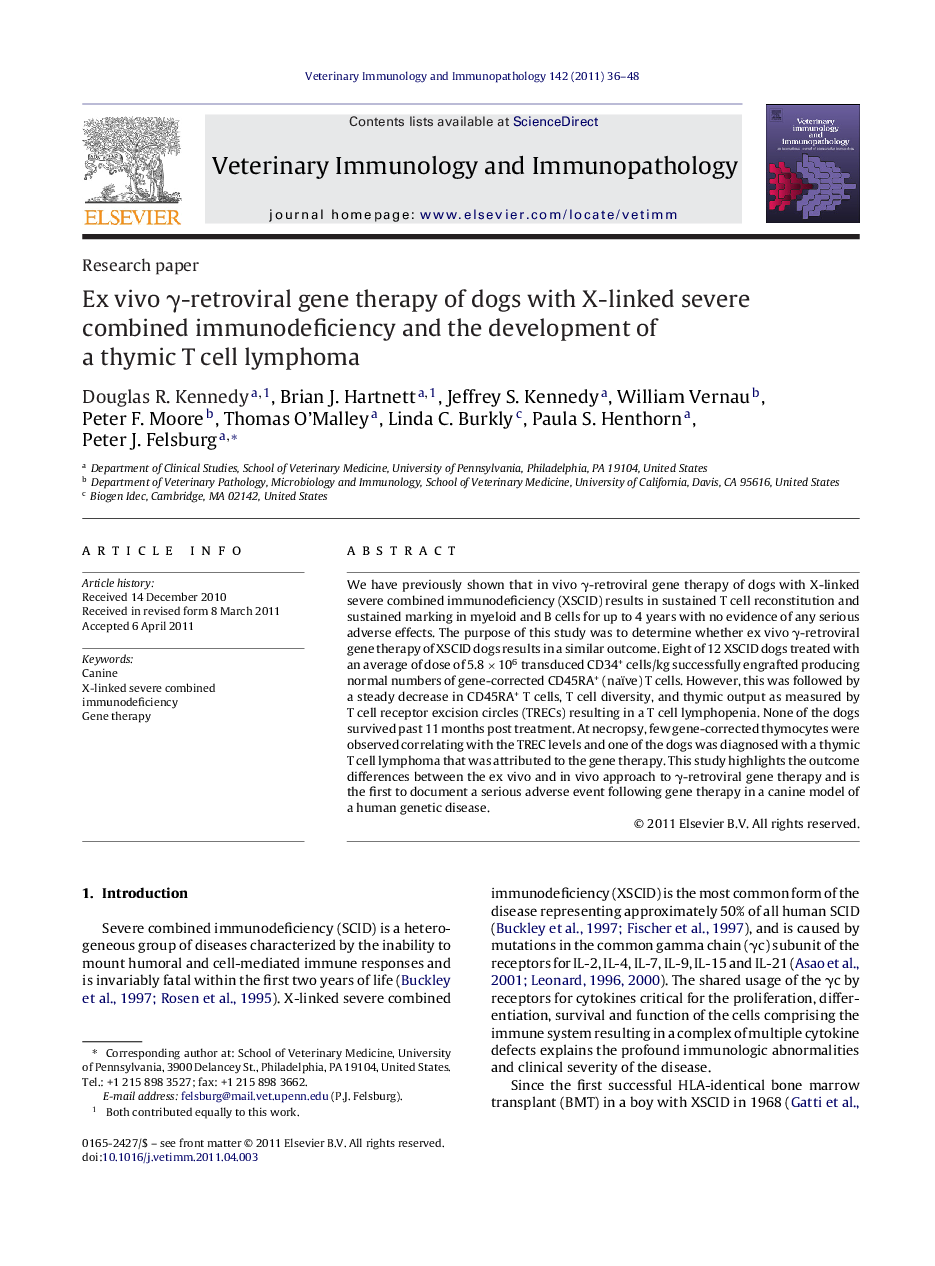| Article ID | Journal | Published Year | Pages | File Type |
|---|---|---|---|---|
| 2462108 | Veterinary Immunology and Immunopathology | 2011 | 13 Pages |
We have previously shown that in vivo γ-retroviral gene therapy of dogs with X-linked severe combined immunodeficiency (XSCID) results in sustained T cell reconstitution and sustained marking in myeloid and B cells for up to 4 years with no evidence of any serious adverse effects. The purpose of this study was to determine whether ex vivo γ-retroviral gene therapy of XSCID dogs results in a similar outcome. Eight of 12 XSCID dogs treated with an average of dose of 5.8 × 106 transduced CD34+ cells/kg successfully engrafted producing normal numbers of gene-corrected CD45RA+ (naïve) T cells. However, this was followed by a steady decrease in CD45RA+ T cells, T cell diversity, and thymic output as measured by T cell receptor excision circles (TRECs) resulting in a T cell lymphopenia. None of the dogs survived past 11 months post treatment. At necropsy, few gene-corrected thymocytes were observed correlating with the TREC levels and one of the dogs was diagnosed with a thymic T cell lymphoma that was attributed to the gene therapy. This study highlights the outcome differences between the ex vivo and in vivo approach to γ-retroviral gene therapy and is the first to document a serious adverse event following gene therapy in a canine model of a human genetic disease.
